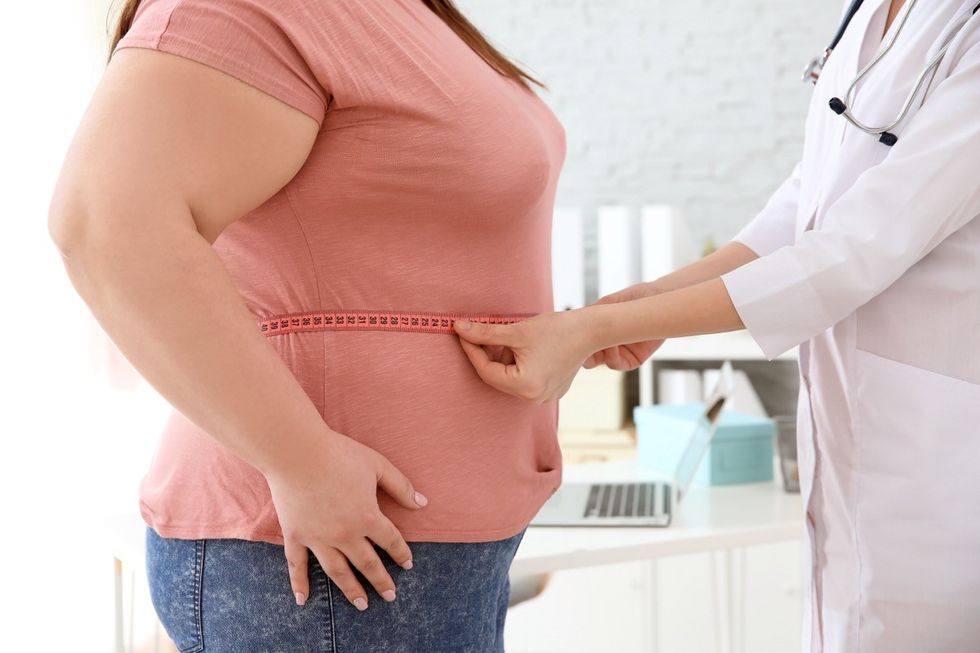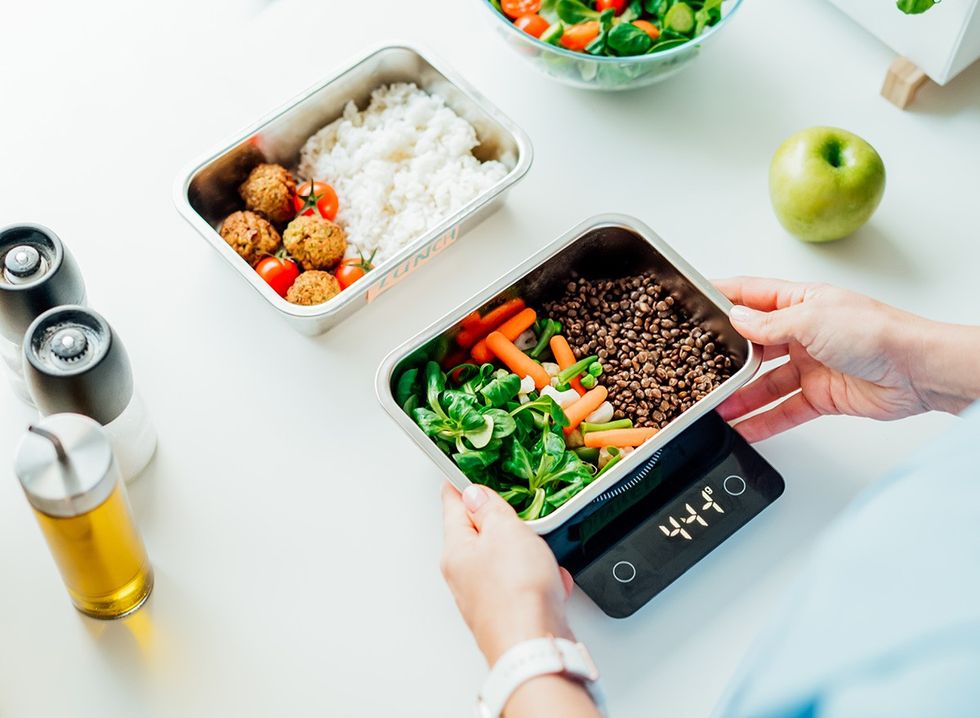Ever wondered how small dietary changes could transform your health? Connie Riet, a mindfulness life coach and minimalist, shares her personal journey of rediscovering wholesome eating habits. Her story resonates with many who've strayed from nutritious diets only to find their way back to better health.
Connie Riet is a passionate mindfulness life coach and minimalist dedicated to helping individuals achieve greater peace, clarity, and fulfillment. Her experience as a certified life coach has equipped her with valuable insights into healthy living and personal growth. Raised on a small rural farm, Connie's journey back to wholesome eating offers practical wisdom for anyone looking to improve their health through diet.
"I always feel my very best, have high energy, and am sick far less often when I am eating healthy foods," Connie shares. "I grew up on a small rural farm where my mom cooked from scratch, and we had a large family garden that we ate from, and I really feel like I reaped the health benefits from being raised this way with wholesome, simple whole foods."
Ditch the Drive-Thru
Connie found that eliminating fast food made the quickest impact on her well-being. "Whenever I did eat fast food, there was a gurgle in my tummy. My tummy wanted to reject it, and I instantly became bloated, heavy, and gassy," she recalls in her post.
Connie noticed her skin became chalky, her hair lost its shine, and she never felt truly satisfied after a fast food meal. She explains, "The quality of fast food is not very good and lacks the nutritional substance that I would prefer. It's often not fresh, but instead packaged or frozen so that it can be prepared quickly."
How Fast Food Affects Your Body
Fast food can have a significant impact on your health. Dietitian Nancy Geib, RD, LDN, notes that while an occasional fast food meal isn't a big concern, making it a regular habit could have serious health repercussions. Fast food is often high in sodium, saturated fat, and refined carbohydrates, which can contribute to various health issues such as high blood pressure, cholesterol problems, digestive issues, and weight gain.
Identify the Unhealthiest Fast Food Options
According to the Cleveland Clinic, some of the most unhealthy fast food options include:
- Pizza: A single slice of pepperoni pizza contains about 680 milligrams of sodium, 12 grams of fat, and 300 calories.
- Burger and Fries: A double cheeseburger and large fries provide about 1,200 calories and up to 1,700 milligrams of sodium.
- Cold-Cut Combo: Processed deli meats are loaded with sodium and carcinogenic agents like nitrates.
- Hot Dog: A single hot dog contains over half of your daily recommended saturated fat intake and 33% of your sodium intake.
- Fried Chicken: One fried chicken breast can pack 500 calories, 34 grams of fat, and over 1,200 milligrams of sodium.
Make Healthier Fast Food Choices
It's possible to eat fast food without derailing your diet if you choose wisely. Opt for meals with lean proteins, vegetables, and fiber, and avoid anything supersized. "You can make an informed choice by doing research to find out the nutritional content of a particular fast food item," says Geib. "All of the major restaurants should have that information online or be able to hand it to you in the restaurant if you ask."
Skip the Processed Snacks
Overly processed foods like packaged cookies, crackers, protein bars, candy, chips, and cereal were next on Connie's list to eliminate. "As convenient as these snack items are, they tend to have a lot of preservatives so that they can keep their shelf life for months," Connie points out. She noticed retention of water and puffiness when consuming these foods.
The Impact of Processed Foods
Processed foods are often loaded with harmful additives, colors, and emulsifiers, high in sugar, saturated fat, and salt, but low in health-promoting vitamins and fiber. This can lead to serious health risks, including high blood pressure, heart disease, diabetes, obesity, and certain types of cancer. Fang Fang Zhang, PhD, from Tufts University, tells WebMD that these foods can also cause inflammation in the gut, leading to digestive issues.
Unhealthy Processed Food Options
Processed meats, sugary drinks, dairy-based desserts, and breakfast foods have the strongest links to early death, according to a 30-year study. Mingyang Song, ScD, from Harvard T.H. Chan School of Public Health, points out that the most notable associations were seen with meat, poultry, and seafood-based ready-to-eat products.
Choose Whole Foods for Better Health
"I find that simple whole foods that are recognizable are far more satisfying to me than processed foods. I like knowing the fuel that I'm putting in my body so that I can look and feel my best," Connie shares. Opt for fresh fruits, vegetables, whole grains, and lean proteins instead of processed snacks.
Ditch Sugary Drinks
Connie discovered that large portions of sugar negatively impacted her body. "I tend to gain weight rather quickly. I feel sluggish and I break out," she explains. Connie highlights the hidden dangers of sugary drinks: "There is typically a ton of added sugar in many drinks like soda, energy drinks, coffee drinks, and juice. Sugary drinks are empty calories without any nutritional value."
Understand the Impact of Sugary Drinks
Senior Dietitian Victoria Taylor from the British Heart Foundation explains that diets high in sugar are linked to obesity, which increases the risk of heart and circulatory diseases. Consuming sugary drinks regularly can contribute to weight gain, tooth decay, and elevated blood sugar levels.
Identify the Most Unhealthy Sugary Drink Options
Some of the worst offenders when it comes to sugary drinks include sodas, energy drinks, and even some fruit juices. According to Taylor, "many of them come with as much as nine or 10 teaspoons of sugar in a bottle or can."
Choose Healthier Drink Alternatives
The British Heart Foundation advises looking for drinks labeled 'no added sugar' or those containing less than 5g of sugar per 100ml. Additionally, opting for plain water, herbal teas, or milk can be better choices. "A daily 150ml glass of pure, unsweetened juice still counts as one of your 5-a-day," says Taylor, "but a piece of whole fruit is a better choice."
Avoid Hidden Sugars and Chemicals
Connie's most recent dietary change was eliminating store-bought condiments. After traveling abroad, where such items were less available, she discovered a simple salad dressing recipe of olive oil, vinegar, mustard, and seasonings. Upon returning home, she realized, "I didn't realize before how many chemicals and added sugars are in condiments, but the heavy flavor really overpowered the simplicity and taste of the food I was eating."
Beware of Excessive Sugar in Condiments
Many store-bought condiments, particularly those marketed as "sweet," contain surprisingly high amounts of added sugar. “Condiments like relish, ketchup, or BBQ sauce are full of sugar. For example, ketchup and sweet pickle relish have around 5 grams of sugar per 1 tablespoon serving. Skip the store-bought condiments and cook up this lower-sugar version of BBQ sauce,” advises National Kidney Foundation.
Watch Out for Artificial Additives
Some condiments may include artificial additives such as artificial colors, flavors, and preservatives. These chemicals have been linked to various health concerns, including allergies, hyperactivity, and potential long-term health risks.
Be Mindful of Sodium Content
Condiments, especially those containing soy sauce or other salty ingredients, can be high in sodium. Excessive sodium intake is associated with high blood pressure, heart disease, and stroke.
Choose Healthier Fats in Condiments
Some condiments, such as mayonnaise and certain salad dressings, may contain unhealthy fats. “Try to keep saturated fat at less than 10% of total daily calories. Monounsaturated fat — found in olive, peanut, and canola oils — is a healthier option than saturated fat. Nuts, fish, and other foods containing unsaturated omega-3 fatty acids are other good choices of foods with healthy fats,” suggests the Mayo Clinic.
RELATED: I Shrunk From Size 22 to 8 With These 15 Tips That Actually Work
Make Your Own Healthy Condiments
Now, Connie makes her own salad dressings, barbecue sauce, veggie dips, and sandwich spreads using simple, whole food ingredients. This allows her to control the ingredients and avoid hidden sugars and chemicals.
Reconsider Your Meat Intake
Seventeen years ago, Connie experimented with eliminating red and white meat for 30 days. "After the 30 days of not eating red or white meat, the layer of blubber was gone, so that was nice, but more than that, I noticed that my energy was way up and I didn't have that weighed down heavy feeling that I did have when I was eating meat," she shares.
Understand the Impact of Red Meat
While red meat can be a good source of protein, B vitamins, iron, and zinc, frequent consumption has been linked to increased risks of heart disease, certain cancers, and obesity. Registered dietitian Julia Zumpano, RD, LD, from Cleveland Clinic, warns, "Growing research has shown negative health impacts with frequent consumption of red meat, especially processed red meat."
RELATED: I Lost 250 Pounds With 5 Simple Walking Tricks
Identify Unhealthy Red Meat Options
Processed red meats, such as bacon, sausages, and deli meats, are particularly unhealthy due to their high levels of sodium, nitrates, and saturated fats. These can contribute to cardiovascular diseases and other health issues.
Choose Healthier Meat Alternatives
Experts from Cleveland Clinic recommend choosing leaner meats like chicken, turkey, and fish as healthier alternatives. Additionally, plant-based options like beans, lentils, and tofu are excellent sources of protein and other nutrients without the associated health risks of red meat.
Listen to Your Body and Make Individual Choices
Connie emphasizes that her choices may not suit everyone: "Not eating meat is definitely not for everybody. I'm actually the only person in my whole family who doesn't eat meat. Each person, individual, and their bodies will run better on different kinds of food, and I truly believe that each of us is our best judge when it comes to what foods really impact our overall wellbeing and our health and our energy and how we feel."
RELATED: I Went Sugar, Gluten, and Dairy Free for 60 Days and Here Is What Happened
Embark on Your Own Health Journey
By sharing her personal journey, Connie encourages others to listen to their bodies and make dietary choices that support their individual health and well-being. As she puts it, "This began my thirst for knowledge about how food helped me feel and the effects it had on my overall health. I started to really listen into my body and eliminate certain types of food or certain foods and just kind of notice if it made a difference or an impact on how I was feeling." And if you enjoyed this article, don't miss I’m a Nutritionist and Here Are 25 Weight Loss Truths You Need to Hear.

























 Shutterstock
Shutterstock Shutterstock
Shutterstock Shutterstock
Shutterstock Shutterstock/Shift Drive
Shutterstock/Shift Drive Shutterstock
Shutterstock Shutterstock
Shutterstock Shutterstock
Shutterstock Shutterstock
Shutterstock Shutterstock
Shutterstock Shutterstock/Stokkete
Shutterstock/Stokkete Shutterstock
Shutterstock


 Shutterstock
Shutterstock
 Shutterstock
Shutterstock Shutterstock
Shutterstock Shutterstock
Shutterstock Shutterstock
Shutterstock Shutterstock
Shutterstock Shutterstock
Shutterstock Shutterstock
Shutterstock Shutterstock
Shutterstock Shutterstock
Shutterstock Shutterstock
Shutterstock

 I'm a Nutritionist and These 9 High-Protein Snacks Keep My Clients Full While Losing 50 Pounds
I'm a Nutritionist and These 9 High-Protein Snacks Keep My Clients Full While Losing 50 Pounds
 Shutterstock
Shutterstock 2. Processed FoodsShutterstock
2. Processed FoodsShutterstock Shutterstock
Shutterstock Shutterstock/Prostock-studio
Shutterstock/Prostock-studio Shutterstock
Shutterstock Pro TipsShutterstock
Pro TipsShutterstock Shutterstock
Shutterstock Shutterstock
Shutterstock Shutterstock
Shutterstock Shutterstock
Shutterstock Don’t Drink as Much AlcoholShutterstock
Don’t Drink as Much AlcoholShutterstock Most Women on GLP-1s Are Making a Few Common MistakesShutterstock
Most Women on GLP-1s Are Making a Few Common MistakesShutterstock Soda and Sugary DrinksShutterstock
Soda and Sugary DrinksShutterstock Shutterstock
Shutterstock Eat BreakfastShutterstock
Eat BreakfastShutterstock And Improve Insulin SensitivityShutterstock
And Improve Insulin SensitivityShutterstock Belly Flab Strip Tip: Sugar and Fat Calories Leave Its Mark on Your BodyShutterstock
Belly Flab Strip Tip: Sugar and Fat Calories Leave Its Mark on Your BodyShutterstock Shutterstock
Shutterstock The Drugs Mimic the GLP-1 Hormone Naturally Produced by the BodyShutterstock
The Drugs Mimic the GLP-1 Hormone Naturally Produced by the BodyShutterstock 3. Deep-Fried ItemsShutterstock
3. Deep-Fried ItemsShutterstock